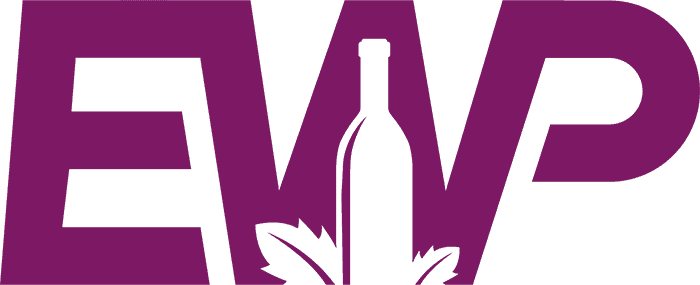Are you passionate about wine and dreaming of becoming a wine expert? Well, you’re in luck! In this article, we’ll give you an insight into the various wine certification programs available and what it takes to become a wine expert. From prestigious programs like WSET and CMS to highly sought-after ones like IMW and CSW, we’ll explore the requirements, curriculum, and career opportunities associated with each. So, if you’re ready to dive into the fascinating realm of oenology, read on to uncork the world of wine!
Contents
- Training Courses for Wine Expertise
- Self-Study Options for Wine Knowledge
- Formal Training in Oenology
- INSEEC Courses in Wine
- Salary Range for Wine Experts
- WSET and CMS Wine Certification Programs
- IMW Wine Certification Program
- CSW Wine Certification Program
- WSG Wine Certification Program
- General Information About Wine Certifications
Training Courses for Wine Expertise
To become a wine expert, you can pursue various training courses that offer specialized knowledge and skills in the field of oenology. Online courses for wine expertise provide a convenient and flexible way to learn about different wine regions, grape varieties, and tasting techniques. These courses usually include interactive modules, virtual tastings, and quizzes to test your knowledge. Practical workshops for wine knowledge are another great option for hands-on learning. These workshops often cover topics such as wine production, wine pairing, and cellar management. They give you the opportunity to taste a variety of wines and learn from experienced professionals in the industry.
Tasting events for wine enthusiasts are also essential for developing your palate and expanding your wine knowledge. These events bring together wine producers and enthusiasts, allowing you to taste a wide range of wines and learn about their characteristics. Mentorship programs for aspiring sommeliers provide invaluable guidance and support from experienced professionals. These programs offer mentorship, training, and networking opportunities to help you excel in your career. Finally, participating in international wine competitions can further enhance your expertise. These competitions provide a platform to showcase your wine knowledge and tasting skills, and they offer valuable feedback from renowned judges.
Self-Study Options for Wine Knowledge
Start your journey to becoming a wine expert by exploring self-study options for wine knowledge. Self-study has several advantages when it comes to learning about wine. One option is to delve into wine literature, which can provide a theoretical foundation and deepen your knowledge. Specialized books can offer in-depth insights into different aspects of wine, from grape varieties to winemaking techniques. Another approach is to follow the wine cycle step by step, exploring each stage of production and understanding the intricacies of viticulture and viniculture. This hands-on exploration allows you to gain a general wine culture and develop a holistic understanding of the wine industry.
Self-study is a feasible option for becoming a wine expert, as it allows you to learn at your own pace and tailor your studies to your specific interests. However, it is important to approach self-study with discipline and structure. Creating a study schedule, setting goals, and regularly reviewing your progress can help you stay on track and ensure effective learning. Additionally, seeking out online resources, joining wine forums, and attending tastings and events can supplement your self-study efforts and provide opportunities for networking and further exploration.
Formal Training in Oenology
Embark on a formal training in oenology to further your journey towards becoming a wine expert. This type of training offers a structured and comprehensive approach to learning about wine. Here are three key aspects of formal training in oenology:
- Theoretical courses: Formal training programs in oenology typically include courses that cover the science and theory behind winemaking. These courses provide a solid foundation of knowledge and understanding of the various aspects of wine production, including grape cultivation, fermentation, aging, and blending.
- Practical internships: To gain practical experience and hands-on training, formal training programs often require students to complete internships in the wine industry. These internships provide valuable opportunities to work alongside wine industry professionals, learning the practical skills and techniques necessary for producing and evaluating wine.
- National Diploma: One of the goals of formal training in oenology is to obtain a recognized qualification, such as a National Diploma in Oenology (DNO). This diploma certifies that you have successfully completed the program, demonstrating your expertise in the field. Having a National Diploma can open up various career opportunities in the wine industry, including roles in winemaking, wine production management, wine education, and wine sales.
INSEEC Courses in Wine
Continue your journey towards becoming a wine expert by exploring the wine courses offered at INSEEC. INSEEC offers a Bachelor’s degree in Wine and Spirits Business Management, providing students with the opportunity to specialize in the wine and spirits industry. This program is open to all students and can be completed in one to three years.
By enrolling in the INSEEC courses, you will gain a comprehensive understanding of the wine industry and develop skills in wine business management. The curriculum covers various aspects, including wine production, marketing, distribution, and sales. You will also learn about wine tasting techniques, wine pairing, and wine tourism.
To be eligible for the INSEEC wine courses, you need to have a Bac+1 or Bac+2 qualification. This ensures that students have a solid foundation of knowledge before diving into the specialized wine program.
Completing the INSEEC wine courses opens up numerous career opportunities in the wine industry. Graduates can pursue careers as wine salespersons, marketing executives, wine consultants, or even start their own wine businesses. The wine industry offers a wide range of career paths, and the specialized knowledge gained from the INSEEC courses will give you a competitive edge in this field.
Salary Range for Wine Experts
To understand the salary range for wine experts, it is important to consider various factors such as experience, status, and location. Here are three key points to keep in mind:
- Wine expert salary range: The salary range for wine experts can vary significantly based on these factors. On average, wine experts can expect to earn between 2,500 to 4,800 euros gross per month. However, highly experienced experts can earn up to 6,400 euros gross per month. It’s important to note that there is no fixed salary scale for wine experts, as it largely depends on individual circumstances.
- Wine expert job market: The wine industry is highly competitive, and job opportunities for wine experts can vary depending on the region. The demand for wine experts is influenced by consumer preferences, industry trends, and economic factors. Staying updated with the latest industry trends and continuously improving your skills can increase your chances of finding lucrative job opportunities.
- Wine expert career progression and job satisfaction: As a wine expert, there are various career paths to explore, including roles such as sommeliers, wine educators, consultants, and wine buyers. Career progression in the wine industry often involves gaining experience, networking, and continuously expanding your knowledge. Job satisfaction in this field can come from the opportunity to work with different wines, explore new regions, and educate others about the fascinating world of wine.
WSET and CMS Wine Certification Programs
Now let’s delve into the WSET and CMS Wine Certification Programs, which are highly regarded in the wine industry. Both programs offer comprehensive education and certification for wine professionals, but they have some key differences.
Starting with the WSET (Wines & Spirits Education Trust), it offers a four-tier course ranging from Level 1 to Level 4/Diploma. WSET is available in over 70 countries and is suitable for those interested in wine buying, sales, writing, consulting, or education. The program focuses on theory, winemaking, and the business of wine. With a record enrollment of 108,584 students this year, WSET has a strong track record of success.
On the other hand, the CMS (Court of Master Sommeliers) offers a four-tier certification level centered around the role of a sommelier. It is ideal for aspiring sommeliers, hoteliers, restaurateurs, and those looking to gain credibility in the industry. The CMS exams are rigorous and involve theory, service, blind-tasting, and expertise in other beverages. Becoming a Master Sommelier takes an average of 7-10 years, with a pass rate of about 10%.
When choosing between WSET and CMS certifications, consider your career goals and aspirations. WSET provides a broader education in wine and spirits, while CMS focuses specifically on sommelier skills. Success stories of individuals with WSET and CMS certifications abound, with many professionals reaching top positions in the industry.
To prepare for WSET and CMS exams, it is essential to study diligently and practice blind-tasting regularly. Utilize study guides, practice tests, and seek guidance from mentors or instructors. Additionally, participating in tasting groups or wine clubs can enhance your tasting skills.
IMW Wine Certification Program
Learn about the IMW Wine Certification Program and how it can elevate your expertise in the wine industry. The IMW certification process is rigorous and requires a WSET diploma or equivalent, as well as a minimum of 3 years of work experience in the wine industry. Here are three key components of the IMW Wine Certification Program:
- IMW Study Guides: The program provides study guides that offer comprehensive and in-depth knowledge on various aspects of wine. These guides serve as valuable resources for candidates to enhance their understanding and prepare for the exams.
- IMW Residential Seminars: The program includes residential seminar weeks where candidates can immerse themselves in a rich learning environment. These seminars offer the opportunity to interact with industry experts, participate in tastings, and engage in discussions to deepen their knowledge.
- IMW Research Paper: As part of the certification process, candidates are required to complete a research paper on a topic of their choice within the wine industry. This paper allows candidates to showcase their analytical skills, research capabilities, and expertise in a specific area of interest.
CSW Wine Certification Program
The first step to becoming a wine expert is by enrolling in the CSW Wine Certification Program. The CSW exam format is a self-study, multiple-choice exam that tests your knowledge on a wide range of wine-related topics. To prepare for the exam, you will have access to comprehensive study materials provided by The Society Of Wine Educators. These study materials cover all the necessary information and will help you develop a strong foundation in wine knowledge.
Obtaining the CSW certification offers several benefits. First, it provides credibility and recognition in the wine industry, opening up opportunities for career advancement. With a CSW certification, you can pursue various career opportunities in wine production or distribution. Additionally, the CSW certification allows you to access exclusive resources such as website access, seminars, and tastings, which can further enhance your expertise.
When preparing for the CSW exam, it is important to dedicate time to studying and reviewing the study materials. Familiarize yourself with different wine regions, grape varieties, production methods, and wine tasting techniques. Practice answering multiple-choice questions to improve your exam performance.
WSG Wine Certification Program
To continue your journey towards becoming a wine expert, let’s delve into the WSG Wine Certification Program. This program offers a range of certifications that can enhance your knowledge and skills in the world of wine. Here are three key aspects of the WSG Wine Certification Program that will surely pique your interest:
- Specialized Education: The WSG offers region-specific programs that focus on independent wine regions like France, Italy, and Spain. This allows you to deepen your understanding of these global wine regions and develop expertise in their wines and terroirs. Through their classroom and online curriculum options, the WSG provides comprehensive and structured education that covers various aspects of wine tasting, production, and the business of wine.
- Master Level Certification: If you aspire to reach the pinnacle of wine knowledge and expertise, the WSG offers master level certification in major wine regions. This advanced certification not only demonstrates your in-depth understanding of these regions but also opens doors to exciting wine industry careers. Whether you’re interested in wine buying, sales, writing, consulting, or education, the WSG certification can greatly enhance your professional prospects.
- Immersive Study Tours: One of the unique offerings of the WSG is their immersive wine study tours in significant wine-growing regions. These tours provide you with the opportunity to experience firsthand the vineyards, wineries, and cultural aspects of these regions. By immersing yourself in the wine regions you’re studying, you’ll gain a deeper appreciation for wine, its production, and the local culture.
General Information About Wine Certifications
Now, let’s delve into the general information surrounding wine certifications and their importance in the wine industry. Wine certifications provide individuals with the necessary knowledge and skills to excel in the wine world. They offer a structured curriculum that covers various aspects of wine, including tasting techniques, wine production, and global marketing. By attaining a wine certification, you can enhance your career opportunities and gain global recognition in the industry.
There are several popular wine certifications available, such as WSET (Wines & Spirits Education Trust), CMS (Court Of Master Sommeliers), IMW (Institute of Masters of Wine), CSW (Certified Specialist Of Wine), and WSG (Wine Scholar Guild). Each certification has its own unique benefits and focuses on different areas of expertise within the wine industry.
Here is a table highlighting some popular wine certifications and their key features:
| Certification | Key Features |
|---|---|
| WSET | Four levels of certification, global recognition |
| CMS | Focus on sommelier role, Master Sommelier exam |
| IMW | Highly sought-after MW title, blind tasting exams |
| CSW | Widely recognized, self-study exam |
| WSG | Region specialized programs, master level certification |
Obtaining a wine certification has numerous benefits. It provides a strong foundation of knowledge, enhances wine appreciation and tasting skills, and offers networking opportunities with industry professionals. Furthermore, wine education courses improve customer service and increase profits for businesses. By completing a wine certification, you can unlock a range of career opportunities in the wine industry, such as wine salesperson, beverage manager, or wine program manager.



